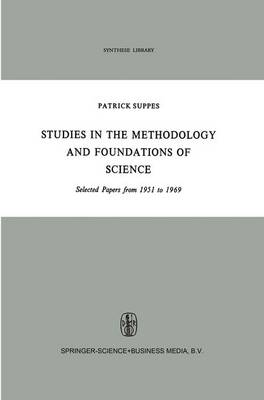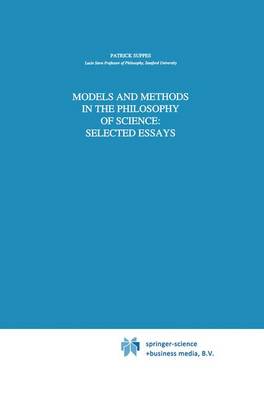Synthese Library
2 primary works
Book 22
The twenty-three papers collected in tbis volume represent an important part of my published work up to the date of this volume. I have not arranged the paper chronologically, but under four main headings. Part I contains five papers on methodology concerned with models and measurement in the sciences....Read more
The twenty-three papers collected in tbis volume represent an important part of my published work up to the date of this volume. I have not arranged the paper chronologically, but under four main headings. Part I contains five papers on methodology concerned with models and measurement in the sciences. This part also contains the first paper I published, 'A Set of Independent Axioms for Extensive Quantities', in Portugaliae Mathematica in 1951. Part 11 also is concerned with methodology and ineludes six papers on probability and utility. It is not always easy to separate papers on probability and utility from papers on measurement, because of the elose connection between the two subjects, but Artieles 6 and 8, even though they have elose relations to measurement, seem more properly to belong in Part 11, because they are concerned with substantive questions about probability and utility. The last two parts are concerned with the foundations of physics and the foundations of psychology. I have used the term foundations rather than philosophy, because the papers are mainly concerned with specific axiomatic formulations for particular parts of physics or of psychology, and it seems to me that the termfoundations more appropriately describes such constructive axiomatic ventures. Part 111 contains four papers on the foundations of physics. The first paper deals with foundations of special relativity and the last three with the role ofprobability in quantum mechanics.
Book 226
Models and Methods in the Philosophy of Science: Selected Essays
by Patrick Suppes
Published 31 May 1993
The thirty-one papers collected in this volume represent most of the arti cles that I have published in the philosophy of science and related founda tional areas of science since 1970. The present volume is a natural succes sor to Studies in the Methodology and Foundations of Science, a...Read more
The thirty-one papers collected in this volume represent most of the arti cles that I have published in the philosophy of science and related founda tional areas of science since 1970. The present volume is a natural succes sor to Studies in the Methodology and Foundations of Science, a collection of my articles published in 1969 by Reidel (now a part of Kluwer). The articles are arranged under five main headings. Part I contains six articles on general methodology. The topics range from formal methods to the plurality of science. Part II contains six articles on causality and explanation. The emphasis is almost entirely on probabilistic approaches. Part III contains six articles on probability and measurement. The impor tance of representation theorems for both probability and measurement is stressed. Part IV contains five articles on the foundations of physics. The first three articles are concerned with action at a distance and space and time, the last two with quantum mechanics. Part V contains eight articles on the foundations of psychology. This is the longest part and the articles reflect my continuing strong interest in the nature of learning and perception. Within each part the articles are arranged chronologically. I turn now to a more detailed overview of the content. The first article of Part I concerns the role of formal methods in the philosophy of science. Here I discuss what is the new role for formal methods now that the imperialism of logical positivism has disappeared.

